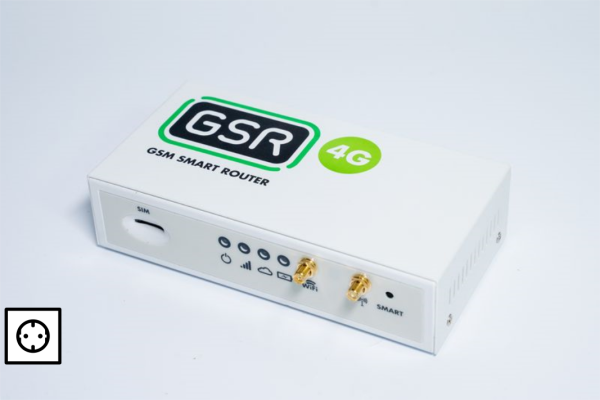4.9.1.1. Programming a call diversion
GSR supports up to 6 call memories. It refers to the positions with numbers that go from 1 to 6:
| Origin | Destination | |
|---|---|---|
| Position 1 | $tro1 | $trd1 |
| Position 2 | $tro2 | $trd2 |
| Position 3 | $tro3 | $trd3 |
| Position 4 | $tro4 | $trd4 |
| Position 5 | $tro5 | $trd5 |
| Position 6 | $tro6 | $trd6 |
When introducing a phone number, this must be inside quotation marks ( “ ). A call diversion can be set with the following SMS:
12345,S:$tro1:“first_origin_number”,S:$trd1:“first_destination_number”
Response:
[“OK”,“OK”]
In this case it indicates that outcoming calls to first_origin_number must be diverted to first_destination_number.
If there is a need to restrict an outcoming call to a particular number, the destination must be left blank like in this example:
12345,S:$tro1:“number_to_restrict”,S:$trd1:”“
Response:
[“OK”,“OK”]
As soon as the device detects an attempt of an outcoming call to number_to_restrict it will not do allow it. If the goal is to restrict all calls with a common prefix, the asterisk symbol ( * ) must be used:
12345,S:$tro1:“902 * “,S:$trd1:”“
Response:
[“OK”,“OK”]
Doing this all outcoming calls starting with 0870 will be stopped (will not be carried out).
4.9.1.2. Whitelist management
All outcoming calls identified with the asterisk symbol ( * ) can be directed to that same number with the equal sign ( = ) as destination. With the same format used in diverted calls, a whitelist can be created with the following SMS:
12345,S:$tro6:” * “,S:$trd6:”=”
Response:
[“OK”,“OK”]
This is the standard behaviour of the device when the whitelist is empty.
4.9.1.3. Polarity inversion simulation
The device has the capacity to simulate polarity inversion in outcoming calls (polarity is not inverted as standard). To do so it counts with the parametre $swpl and it can be set to the values t or f (no quotation marks) as shown:
12345,S:$swpl:t – inverts polarity
12345,S:$swpl:f – does not invert polarity
In both cases the response is:
[“OK”]



